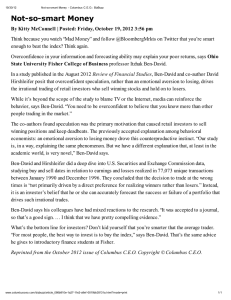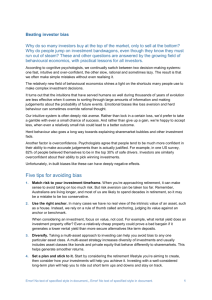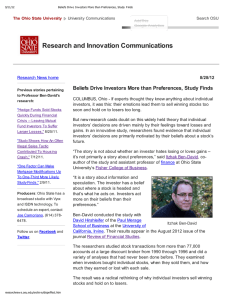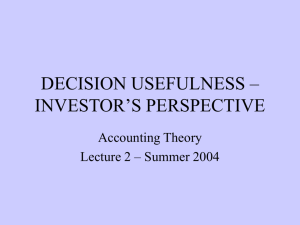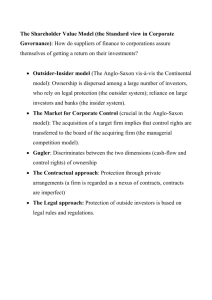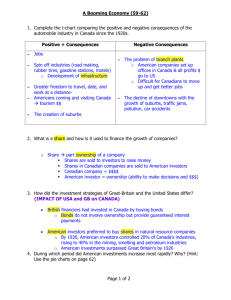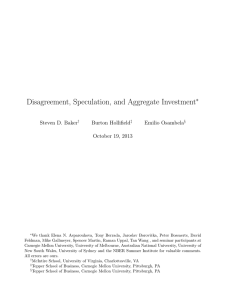The Guru Investor Study’s Findings Challenge Loss- Aversion Theory
advertisement
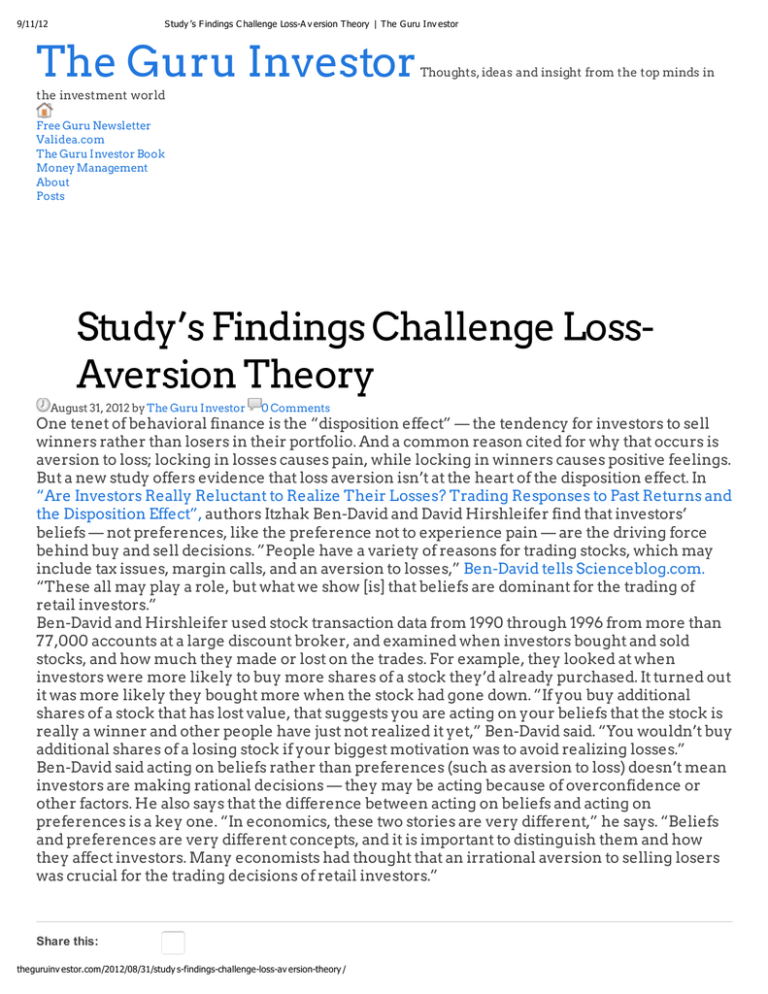
9/11/12 S tudy ’s F indings C hallenge Loss-A v ersion Theory | The G uru Inv estor The Guru Investor Thoughts, ideas and insight from the top minds in the investment world Free Guru Newsletter Validea.com The Guru Investor Book Money Management About Posts Study’s Findings Challenge LossAversion Theory August 31, 2012 by The Guru Investor 0 Comments One tenet of behavioral finance is the “disposition effect” — the tendency for investors to sell winners rather than losers in their portfolio. And a common reason cited for why that occurs is aversion to loss; locking in losses causes pain, while locking in winners causes positive feelings. But a new study offers evidence that loss aversion isn’t at the heart of the disposition effect. In “Are Investors Really Reluctant to Realize Their Losses? Trading Responses to Past Returns and the Disposition Effect”, authors Itzhak Ben-David and David Hirshleifer find that investors’ beliefs — not preferences, like the preference not to experience pain — are the driving force behind buy and sell decisions. ”People have a variety of reasons for trading stocks, which may include tax issues, margin calls, and an aversion to losses,” Ben-David tells Scienceblog.com. “These all may play a role, but what we show [is] that beliefs are dominant for the trading of retail investors.” Ben-David and Hirshleifer used stock transaction data from 1990 through 1996 from more than 77,000 accounts at a large discount broker, and examined when investors bought and sold stocks, and how much they made or lost on the trades. For example, they looked at when investors were more likely to buy more shares of a stock they’d already purchased. It turned out it was more likely they bought more when the stock had gone down. ”If you buy additional shares of a stock that has lost value, that suggests you are acting on your beliefs that the stock is really a winner and other people have just not realized it yet,” Ben-David said. “You wouldn’t buy additional shares of a losing stock if your biggest motivation was to avoid realizing losses.” Ben-David said acting on beliefs rather than preferences (such as aversion to loss) doesn’t mean investors are making rational decisions — they may be acting because of overconfidence or other factors. He also says that the difference between acting on beliefs and acting on preferences is a key one. “In economics, these two stories are very different,” he says. “Beliefs and preferences are very different concepts, and it is important to distinguish them and how they affect investors. Many economists had thought that an irrational aversion to selling losers was crucial for the trading decisions of retail investors.” Share this: theguruinv estor.com/2012/08/31/study s-findings-challenge-loss-av ersion-theory /
